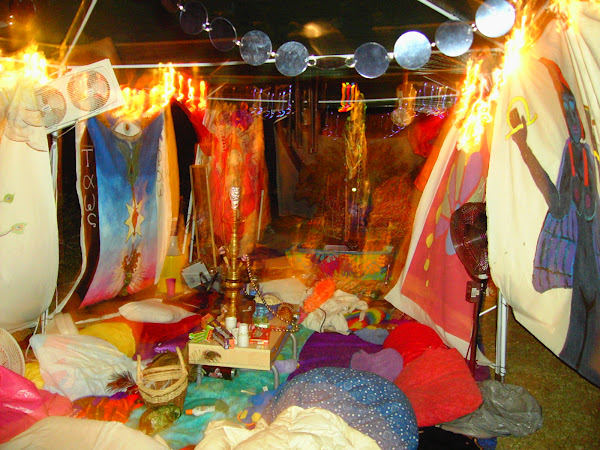With all respect to science, it doesn't yet seem to be the ideal analytic system with which to understand consciousness which, beyond its mechanics, remains largely mysterious in its origins and nature. We don't know more than we do know, presently.
Similarly, using science as the sole grid with which to measure religious experience/ spirituality seems suspect, at best. One who would approach sexuality solely through a scientific rationalist perspective may come to some sort of understanding or even enhanced technique. But there is a gestalt of sexuality which relegates this perspective to a component part, and probably not the most important one at that.
Science has made inroads in beginning to understand things that an older generation of rationalist skeptics regarded as pure bunk. We now understand not only how brainwaves work but what activities alter them. We now understand that the mind/ body link, as exemplified through techniques like yoga and meditation, is much more complex than we previously thought. We understand that exercises once dismissed as mumbo-jumbo impact everything from mood to blood pressure.
I know people who don't fully enjoy their lives because they think too much. They can't kick the habit and forget themselves. Many of them fail to understand that epiphanies can be triggered simply by stilling or focusing the mind through various techniques. For the scientifically minded, it might be useful to consider Archimedes' breakthrough while relaxing in the bathtub. Those who think that they understand all of the functions of the brain should consider its potential role as lens, revelator and transmitter.
Others aren't really scienitifically minded. They call upon the word "science" as others call upon God/gods. Rather than considering what science has accomplished, their religious dogma is to tell us what science WILL accomplish, WILL prove or disprove. They cannot offer details or references because they are out on a limb with the religionists they castigate. One need only consider the erstwhile "scientific" dismissal of "thunderstones" as balderdash, scoffing at the subjectivity of eyewitnesses who saw what we now know are meteorites (an example offered by the late, venrable Robert Anton Wilson). I think it's safe to consider such people victims of Scientism, the faith in what science has yet to achieve.
The temptation for some to pretend that science has (or in some cases can) adequately studied "religious experience" (or altered states of consciousness) seems overwhelming. But it isn't science to dismiss the experience of another by invoking the word "science."
Similarly, some atheist rationalists display a bizarre puritanical streak when addressing altered states. Suddenly the conclusions don't come from science but from "common sense" or other objects of faith. For example, when I bring up the body's naturally occurring DMT and its relationship to the brain, the objections come from politics, common sense and, it seems to me, sheer ignorance and fear. Those objecting seldom have the basic knowledge of naturally occurring altered states. They get uncomfortable and speak of "chemical imbalance," as if they possess some scientific standard for this or full knowledge of the role of this and other examples of the body's natural "drugs." It's horseshit.
I have suggested often enough that anyone can, through a very wide variety of methods, consider the potential usefulness and expended perspective granted by some altered states. And when I say altered states, I include spiritual experience and sexual rapture; I am not specifically referring to certain drugs (neither am I excluding them for reasons of popular morality).
Frankly, I think that some people think too much. In doing so, I think that they may be repressing aspects of life, brain function and experience that are very natural. That many of these people feel compelled to share their dogmatic faith about what science may conclude one day or "common sense" dictates(as elusive as God, surely) is a bit awkward. When someone appeals to future scientific conclusions, we might as well be talking about religious assertions.
Mystery frightens some people. It fascinates others. I would suggest that there are truths available experientially, through experiential gnosis, that merit exploration. Barring that, I have little use for "scientism" telling me which of my experiences and what aspects of my knowledge are false. Like the virgin who has read a book about sex and presumes to hold court, it's a matter for some hilarity.
Tuesday, February 24, 2009
Subscribe to:
Comments (Atom)

